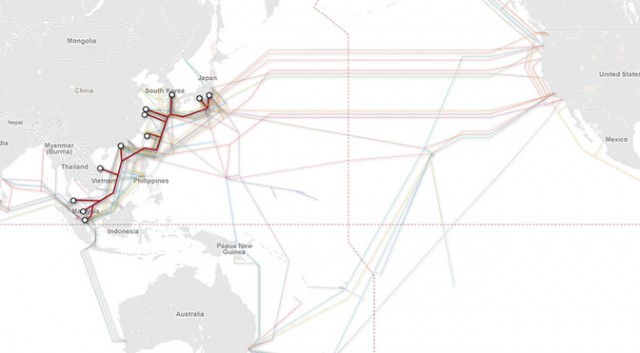Facebook to lay underwater cable in Asia

Following the example of Google, Facebook also decided to invest in communication channels. The social network has joined a consortium that intends to build the fastest fiber optic network in the Asian region: Asia Pacific Gateway (APG). Tellingly, Facebook is the only American company among the investors of the project.
APG's optical fiber network extends from Malaysia to Japan, with branches in a dozen major cities in Singapore, Thailand, Vietnam, China, Taiwan and South Korea.

')
The network is scheduled to be commissioned in 2014. At first, it will operate on 40-gigabit channels and will provide a total bandwidth of 55 Tbps, but in the future the channels will upgrade to 100 Gbps, so that the total bandwidth will be 137 Tbps.
Today, APG's investment capacity is estimated at $ 450 million, making it one of the most expensive submarine cable networks in the world. Investors include China Telecom and China Unicom, the largest telecommunications companies. It is no secret that this project is needed primarily by China, because today almost all traffic from the US to Asia goes through either Japan or Singapore.
In general, Internet companies rarely invest in telecommunications infrastructure, although this should be logical. Google is perhaps the only exception. It is known that the search engine owns extensive sections of backbone communication channels, and also participated in the laying of the Unity trans-Pacific submarine cable between the US and Japan (project cost $ 300 million), and now Google is part of another consortium that is building the submarine fiber network in Asia.
Source: https://habr.com/ru/post/147396/
All Articles